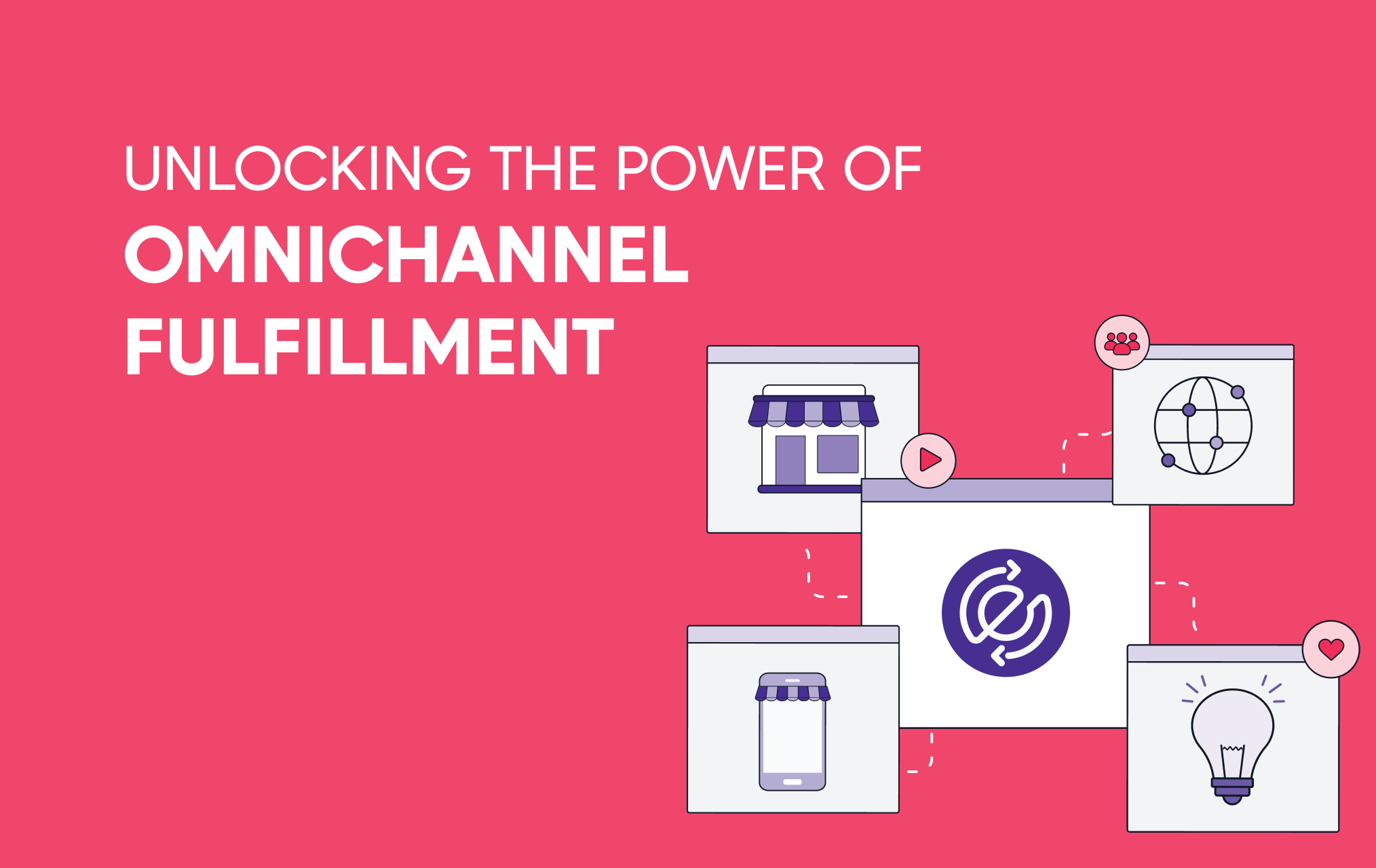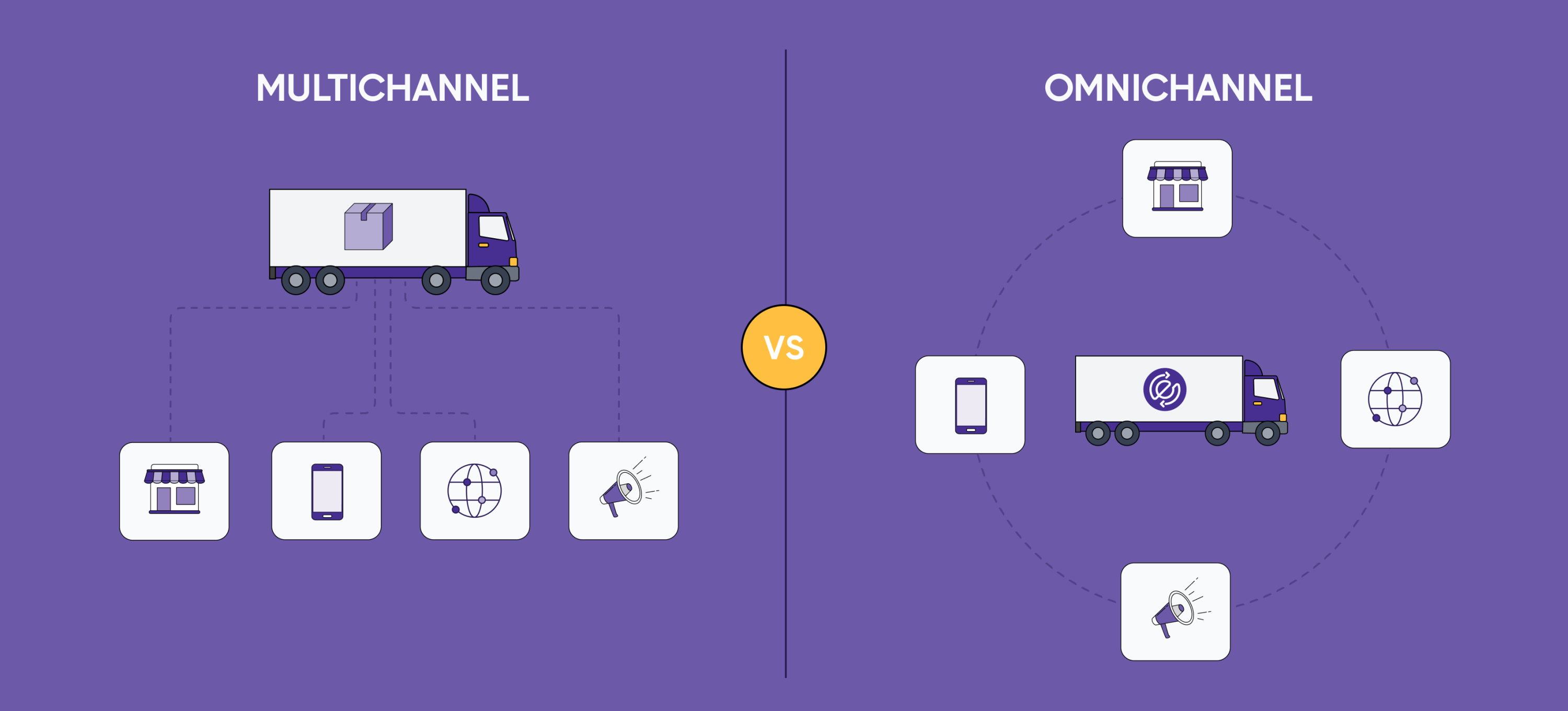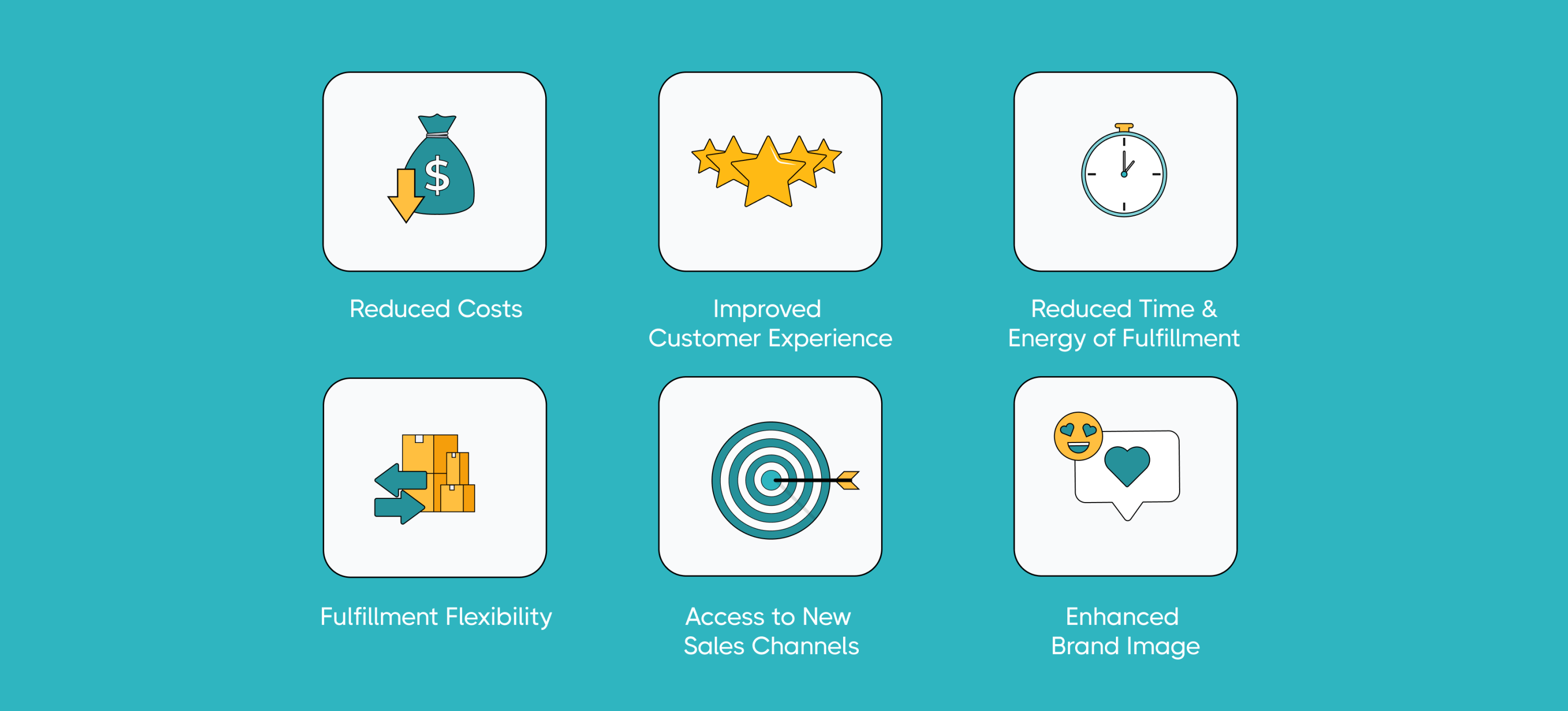
Reem
12 mins read
6 mins read

IRENE MONTPETIT
July 20, 2023
Global eCommerce revenue is projected to reach $8.1 trillion by 2026. Yes, you read that right!
With such incredible predicted growth, many business owners are looking at their sales channels and wondering if they’re ready.
If you are one of these business owners, it’s time to make integrating your online and offline sales channels a top priority. This is where omnichannel fulfillment comes into play.
In this article, we’ll explore the ins and outs of omnichannel fulfillment, including its benefits and challenges, alongside plenty of real-life examples that you can use to build seamless sales channels.
Let’s dive into the world of omnichannel fulfillment together.
Omnichannel fulfillment refers to the approach of integrating various seamless sales channels, such as online stores, brick-and-mortar stores, mobile apps, and social media platforms to provide customers with a consistent and cohesive shopping experience.
‘Omni’ refers to ‘all’. In this case, a large system is integrated all together.
Omnichannel vs. Multichannel
While omnichannel fulfillment and multichannel fulfillment may sound similar, they are very different.
Multichannel fulfillment refers to selling products through multiple sales channels, but these channels operate independently, without any online and offline integration or synchronization – the opposite of omnichannel, as they’re not all together.

Let's consider an example to better understand these differences.
Imagine a customer browsing online, looking for cool custom clothing. On your website, she finds a product she loves. She has the option of ordering it online, but she wants it for tomorrow, so instead decides to head to the closest store to her and make the purchase in person. But, because there is no integration between the two, she can’t see whether it is in stock at the store. So when she arrives there, she gets the bad news – it’s out of stock. Cue her disappointment (and possible annoyance with your brand).
An omnichannel approach could have made a huge difference in this example. If your business had a fully functioning omnichannel strategy in place, she could see exactly what her options were as she was looking at the t-shirt on your website.
In this case, she could’ve had it shipped to her address or picked up in-store, alongside up-to-date and accurate inventory numbers. So while the closest store was showing the item to be out of stock, she noticed your second store had sufficient inventory and after quickly checking out online and choosing in-store pickup, she was on her way. The store was ready for her arrival, and greeted one happy customer.
If the example above didn’t make it clear, let’s take a look at some of the benefits of an omnichannel fulfillment approach.

Implementing omnichannel fulfillment strategies can lead to great cost savings for your business.
By leveraging existing physical store infrastructure for product pickups, returns, and exchanges, businesses can reduce the need for additional warehousing and logistics expenses. Also, inventory optimization across multiple channels can help prevent overstocking or stockouts, resulting in reduced carrying costs and improved operational efficiency.
Providing a seamless sales channel shopping experience across multiple channels is a key advantage of omnichannel fulfillment.
For instance, a customer can browse products online, read reviews, and then visit a nearby store to try out the product before making a purchase - with the knowledge that it is in stock, with even the possible functionality of putting the item on hold.
This holistic approach enhances customer satisfaction and loyalty, driving repeat business and positive word-of-mouth.
Omnichannel fulfillment can streamline the order fulfillment process, reducing the time and effort required to deliver products to customers.
By leveraging local store inventory or strategically located fulfillment centers, businesses can fulfill orders from the closest and most efficient location. This approach leads to faster delivery times, minimizing shipping costs, and improving overall customer satisfaction.
Omnichannel fulfillment enables businesses to offer customers various fulfillment options. Customers can choose to have products delivered to their doorstep, opt for in-store pickup, or even select alternative pickup locations, such as lockers or partner stores.
This flexibility caters to different customer preferences and increases convenience, ultimately driving customer loyalty and retention.
Integrating online and offline sales channels opens up opportunities for business owners to expand their reach and tap into new customer segments.
For instance, a brand primarily operating through online channels can establish pop-up stores or partner with physical retailers, gaining exposure to new audiences and markets. By leveraging multiple sales channels, businesses can diversify their customer base and revenue streams, driving business growth.
Implementing omnichannel fulfillment strategies enhances your overall brand image.
A critical aspect of this strategy is that each channel is interconnected to provide a consistent brand experience and purchase journey. Research by RetailMeNot found that 69% of consumers had used their mobile device to check products at home before shopping in store.
By providing a seamless and consistent shopping experience across different channels, businesses demonstrate professionalism, reliability, and customer-centricity. This can foster good reviews, trust, and positive brand reputation, positioning it as a leader in the market.
Maintaining accurate and real-time inventory information across multiple sales channels can be a complex task.
Without proper synchronization and online and offline integration, discrepancies may arise, leading to inventory inaccuracies. For instance, if a product is sold out online but still appears as available in physical stores even when it’s not, it can result in frustrated customers and lost sales opportunities. Implementing advanced inventory management systems and technologies is crucial to mitigate this challenge.
Legacy systems and outdated technology infrastructure can pose challenges when implementing omnichannel fulfillment strategies.
Incompatibility between different systems can hinder data synchronization, leading to inefficient operations and poor customer experiences. Businesses need to invest in modern, scalable, and integrated technology solutions to overcome these infrastructure challenges and enable seamless sales channel operations.
Omnichannel fulfillment strategies are the future of retail. With seamless online and offline integration sales channels, you can revolutionize the way you serve your customers and propel your brand forward.
By embracing omnichannel fulfillment, you'll not only cut costs but also provide a superior customer experience. Imagine the joy on your customers' faces when they can effortlessly transition from browsing online to picking up their purchases at a nearby store. It's the kind of convenience that breeds loyalty and sets you apart from the competition. This is the difference that will leave a customer shouting from the rooftops to support your brand, rather than avoid it.
But we won't sugarcoat it. Implementing omnichannel fulfillment comes with its fair share of challenges. From inventory inaccuracies to outdated infrastructure, you'll need to address these obstacles head-on. That's where we come in.
Here at eShipper, we specialize in helping eCommerce store owners like you navigate the complex world of shipping and logistics. We've got the expertise and innovative technology to ensure your omnichannel operations run like a well-oiled machine, with no more inventory headaches or online and offline integration nightmares.
So, if you're ready to take your business to the next level, don't hesitate to reach out to us.
Let's take this step forward, and build your omnichannel fulfillment system together.